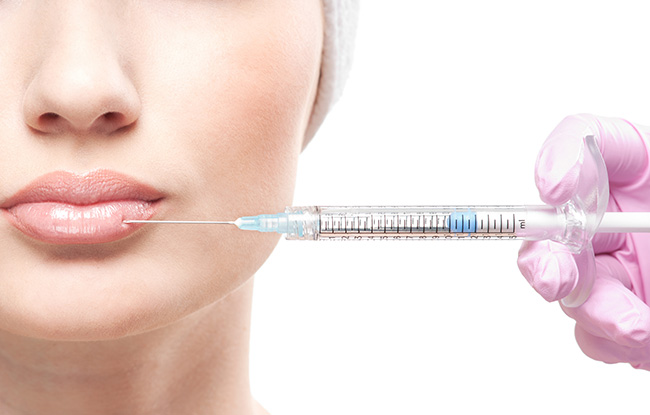Autologous fat grafting
Subcutaneous adipose tissue shrinks easily because of aging.
Volume restoration of the face is regarded as a key step in facial rejuvenation and is commonly addressed with autologous fat transfer.
In addition, autologous fat transplantation can also be used to smooth the skin for the subcutaneous tissue defect and depression caused by trauma.
Autologous fat grafting procedures
Fat injection surgery is mostly performed under local anesthesia. . If it is combined with other procedures, it will mostly be done under general anesthesia.
The fat used for fat transfer can be extracted from part of your body,the Dr. will evaluates the area, like the abdomen or thighs by liposuction, and it will be injected where needed. This cosmetic procedure can be used to rejuvenate the face, augment the cheeks, breast or lips, or correct problems such as hollowness around the eyes or scars.
The transferred fat cells will continue to live in the area in which they were injected, establishing a blood supply and behaving like any other fat cell. About 50% of the transferred fat will be absorbed by the body, about 50% of the fat stays forever.
After 6 months, if necessary, another fat graft may be performed until the desired effect has been obtained. Repetition is needed for about 50% of our patients.
Common sites targeted by the procedure
- Cheeks
- Traumatic tissue defects
- Forehead
- Temples
- Hollow eye sockets
- Smile lines, frown lines, apples of the cheeks
- Lips
- Scaring
- Breasts

Risks
Facial fat transfer complications are generally rare, as the procedure is gentle and safe. However, as with any surgical procedure, there are small risks involved, which may include:
- Infection
- Anesthesia complications
- Fat calcification
- Over or under correction
- kin contour irregularities
- symmetry
Precautions before and after surgery
- Do not take anticoagulants (aspirin, etc.) one week before autologous fat grafting; otherwise, you shall inform your doctor. Do not take nutritional supplements (e.g. Antrodia cinnamomea, Ginkgo biloba, vitamins, fish oil, etc.) either, and reduce intake of foods, such as ginseng, that promote blood flow.
- After operation, please follow doctor’s instruction apply an ice compress to the injection site 5 to 6 times a day for 20 minutes each time. In the first week after surgery, there is swelling and some blood stasis at the injection site. Please use ice compress to relieve pain and help eliminate the swelling.
- After the surgery, the surgical site will be quite swollen and bruised. In about 2-3 weeks of downtime, approximately 80% of the bruising and swelling will have disappeared.
- In order to preserve the result, please maintained the weight, or your fat cells will be expand or shrink.
- The stitches to the wound from liposuction do not need to be taken out. You can take a bath or shower by affixing waterproof tape to the wound. The liposuction site should be pressurized with an elastic bandage or by wearing girdles for a week.
- Eat a normal diet and take rest after surgery; do not smoke or inhale secondhand smoke.
- Abnormal sensation (temporary) at the liposuction site after surgery is normal.
- One month after the injection, it is normal to feel a lump under the skin, and it will disappear slowly after a month.
If you have any questions please do not hesitate to contact us.
- (04)2205-2121 ext. 12020, 12021, Business Hour: Monday through Friday 08:00am-6:00pm, Saturday 08:00am-12:00pm, our center located at 11F, CMU Children’s Hospital.

